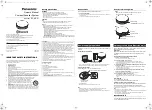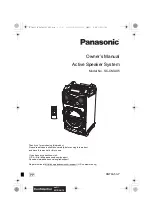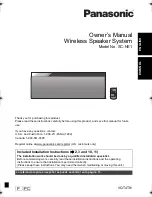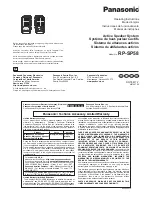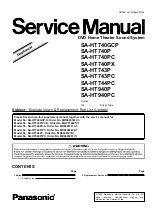
A-7
INSTALLATION
DUAL VANTAGE
®
700
STANDBY POWER CONNECTIONS
The DUAL VANTAGE
®
700 is suitable for temporary, standby or
emergency power using the engine manufacturer’s recommended
maintenance schedule.
The DUAL VANTAGE
®
700 can be permanently installed as a
standby power unit for 240 volt-3 wire, 50 amp service.
Connections must be made by a licensed electrician who can
determine how the 120/240 VAC power can be adapted to the
particular installation and comply with all applicable electrical
codes. Refer to the connection diagram shown in Figure A.4.
1. Install the double-pole, double-throw switch between the power
company meter and the premises disconnect. Switch rating
must be the same or greater than the customer’s premises dis-
connect and service over current protection.
2. Take necessary steps to assure load is limited to the capacity of
the DUAL VANTAGE
®
700 by installing a 50 amp, 240 VAC dou-
ble pole circuit breaker. Maximum rated load for each leg of the
240 VAC auxiliary is 50 amps. Loading above the rated output
will reduce output voltage below the allowable -10% of rated
voltage which may damage appliances or other motor-driven
equipment and may result in overheating of the
DUAL VANTAGE
®
700 engine and / or alternate windings.
3. Install a 50 amp 120/240 VAC plug (NEMA Type 14-50P) to the
double-pole circuit breaker using No. 6, 4 conductor cable of
the desired length.
4. Plug this cable into the 50 Amp 120/240 Volt receptacle on the
DUAL VANTAGE
®
700 case front.
240 Volt
60 Hz.
3-Wire
Service
POWER
COMPANY
METER
240 VOLT
120 VOLT
120 VOLT
LOAD
N
NEUTRAL
BUS
GROUND
PREMISES
DISCONNECT AND
SERVICE
OVERCURRENT
PROTECTION
GND
N
NOTE: No. 6 COPPER CONDUCTOR CABLE SEE
NATIONAL ELECTRICAL CODE FOR ALTERNATE WIRE
SIZE RECOMMENDATIONS.
240 VOLT
GROUNDED CONDUCTOR
50AMP
240 VOLT
DOUBLE
POLE
CIRCUIT
BREAKER
DOUBLE POLE DOUBLE THROW
SWITCH RATING TO BE THE SAME
AS OR GREATER THAN PREMISES
SERVICE OVERCURRENT
PROTECTION.
50 AMP, 120/240
VOLT PLUG
NEMA TYPE 14-50
50 AMP, 120/240 VOLT
RECEPTACLE
FIGURE A.4 Connection of the DUAL VANTAGE® 700 to Premises Wiring
Summary of Contents for DUAL VANTAGE 700
Page 30: ...B 11 NOTES DUAL VANTAGE 700 ...
Page 32: ...C 2 NOTES DUAL VANTAGE 700 ...
Page 38: ...D 6 NOTES DUAL VANTAGE 700 ...
Page 43: ...E 5 NOTES DUAL VANTAGE 700 ...
Page 46: ...F 3 CONNECTION DIAGRAMS DUAL VANTAGE 700 ...
Page 48: ...F 5 CONNECTION DIAGRAMS DUAL VANTAGE 700 ...
Page 49: ...F 6 CONNECTION DIAGRAMS DUAL VANTAGE 700 ...
Page 51: ...F 8 CONNECTION DIAGRAMS DUAL VANTAGE 700 ...
Page 52: ...F 9 CONNECTION DIAGRAMS DUAL VANTAGE 700 ...
Page 53: ...F 10 CONNECTION DIAGRAMS DUAL VANTAGE 700 ...
Page 54: ...F 11 CONNECTION DIAGRAMS DUAL VANTAGE 700 ...
Page 55: ...F 12 CONNECTION DIAGRAMS DUAL VANTAGE 700 2 9 03 ...
Page 56: ...F 13 CONNECTION DIAGRAMS DUAL VANTAGE 700 ...































